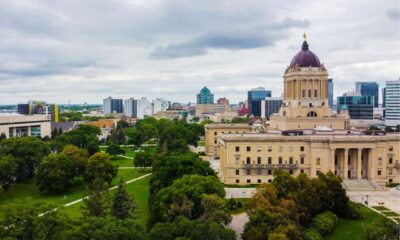Work in Canada
Canada Family Sponsorship Open Work Permits for Outland Applications

For individuals wishing to sponsor their foreign relatives, the Canadian government has made a substantial announcement that will be of great interest. As an esteemed immigration agency, we take immense pride in sharing valuable insights that can help potential applicants navigate the complexities of the immigration process successfully.
What’s New: Open Work Permits for Outland Applications
Recently, IRCC introduced Open Work Permits for Outland Applications and both sponsors and candidates have responded to this development with considerable enthusiasm and anticipation. The most recent change from Immigration, Refugees and Citizenship Canada (IRCC) aims to allow more families to stay together. Applicants can now obtain an Open Work Permit if they are citizens, temporary workers, permanent residents, students, or current students.
What are Outland Applications?
Outland applications are those sponsorship applications that are processed outside of Canada. This is in contrast to Inland applications, which are submitted by individuals who are already in Canada on a temporary resident visa.
Open work permits were previously only available to those who were sponsored from within Canada or who were already citizens of the country while on a Temporary Residence Visa (TRV). People who submit an application from outside of Canada (through outside sponsorship) now qualify for open work permits under the new regulation.
Eligibility for Obtaining Open Work Permits
According to IRCC, Family members may be qualified for an open work permit if they have:
- The same residential address as their sponsor in Canada;
- A valid temporary resident status, have maintained it, are qualified for it, and have applied to have it restored.
According to IRCC official policy, agents may issue an open work permit to foreign nationals who satisfy one of the following requirements:
- Primary applicants who apply for permanent residence in Canada as spouses, common-law partners, or conjugal partners under the family class, and whose applications are being processed by IRCC.
- The applicant has filed a two-year work permit application.
- Has the same address as their sponsor in Canada at the time of the application;
- Is eligible for and has applied for restoration of temporary status
- Is the subject of a sponsorship application made by their spouse, common-law partner, who is a Canadian citizen or permanent resident.
OR
A qualified foreign national is:
- A dependent child who was listed as an accompanying family member in the application for permanent residence
- Has the same address as the principal applicant and their sponsor in Canada at the time of the application;
- Has a valid temporary resident status in Canada, or is qualified for and has applied for restoration of status.
- Has submitted a work permit application with a maximum two-year duration.
Open work permits for outland spousal sponsorship were introduced alongside other family reunification policies like:
- Faster processing timeframes for spousal temporary residence visa (TRV) applications;
- New processing tools specifically for spousal TRV applications; and
- Extensions for open work permit holders whose permits expire between August 1 and the end of 2023.
Canada’s Commitment to Reuniting Families
The IRCC, according to Fraser, is dedicated to reuniting families more rapidly and enabling them to start working and supporting themselves more soon once they arrive. He claimed that by doing this, Canada strengthens its economy and social fibre while assisting newcomers in realizing their full potential.






















